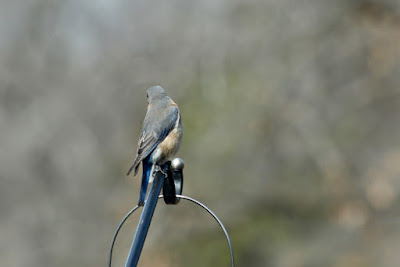All language is magical, and all poetry is language, but not all language is poetry. The unique capabilities of verse are that it simultaneously refers to something beyond itself as all language does (whether something real or not) while also drawing attention to its own artifice. In this way poetry is both the means of expression, and the object itself. Poetry, through the use of certain incantatory affects which we call rhythm, meter, rhyme, consonance, assonance, metaphor, simile and so on makes its own artifice obvious, and thus is honest about and admits its magic.For some time now (precisely, since November 8, 2016) we've been struggling with questions about the impacts and effectiveness of writing, poetry especially, in a time when language itself is being subjected to corrupting influences. Our country's "leaders" seem to have simultaneously gone through the looking glass and down the rabbit hole.
“When I use a word,” Humpty Dumpty said, in rather a scornful tone, “it means just what I choose it to mean—neither more nor less.” “The question is,” said Alice, “whether you can make words mean so many different things.” “The question is,” said Humpty Dumpty, “which is to be master—that's all.”
 |
| when, not if, bluebirds of happiness will return
Photo by J. Harrington
|
In a time of fake accusations of #FakeNews and Tweeted statements, followed by denials the statement was ever made, plus "alternative facts," we have been getting more and more glum. Being reminded this morning of the magic of language began to restore hope. Then, as we were finishing the Orpheus piece, we stumbled into a serendipitous corollary, this one from The Paris Review: What We Can Learn from Neruda’s Poetry of Resistance. Here's a partial answer:
The effectiveness of Neruda’s poetry is proven by its endurance, how often people reach for and evoke his works as a tool to galvanize, to awaken, to sustain. In San Francisco, during the lead up to the 2003 invasion of Iraq, Neruda’s words were draped on banners over the streets: “Tyranny cuts off the head that sings, but the voice at the bottom of the well returns to the secret springs of the earth and out of the darkness rises up through the mouth of the people.” Nearly a decade later, the Egyptian art historian Bahia Shehab spray-painted Neruda’s words on the streets of Cairo during the Arab Spring: “You can cut all the flowers, but you can’t stop spring.” Five years later, during the January 2017 Women’s March, those same words of Neruda that had appeared in Cairo would grace posters bearing the original Spanish:“Podrán cortar todas las flores, pero no podrá detener la primavera.”Each of the pieces we read primed us for a subsequent encounter, later in the morning, when we entered Common Good Books. (We really shouldn't be allowed in there without a responsible adult keeping an eye on us.) The first book to catch our eye was Matthew Zapruder's Why Poetry. Several other volumes subsequently screamed to us "Buy me! Buy me!" (We told you we needed supervision.) During this year's Poetry Month, we'll explore who the rest of those screamers were and at least some of what they have to say. That will give us topics to write about while pondering the inevitability of Spring's somewhat tardy, but avidly hoped for, arrival next month.
Curse
Furrowed motherland, I swear that in your ashes
you will be born like a flower of eternal water
I swear that from your mouth of thirst will come to the air
the petals of bread, the spilt
inaugurated flower. Cursed,
cursed, cursed be those who with an ax and serpent
came to your earthly arena, cursed those
who waited for this day to open the door
of the dwelling to the moor and the bandit:
What have you achieved? Bring, bring the lamp,
see the soaked earth, see the blackened little bone
eaten by the flames, the garment
of murdered Spain.
********************************************
Thanks for visiting. Come again when you can.
Please be kind to each other while you can.
No comments:
Post a Comment